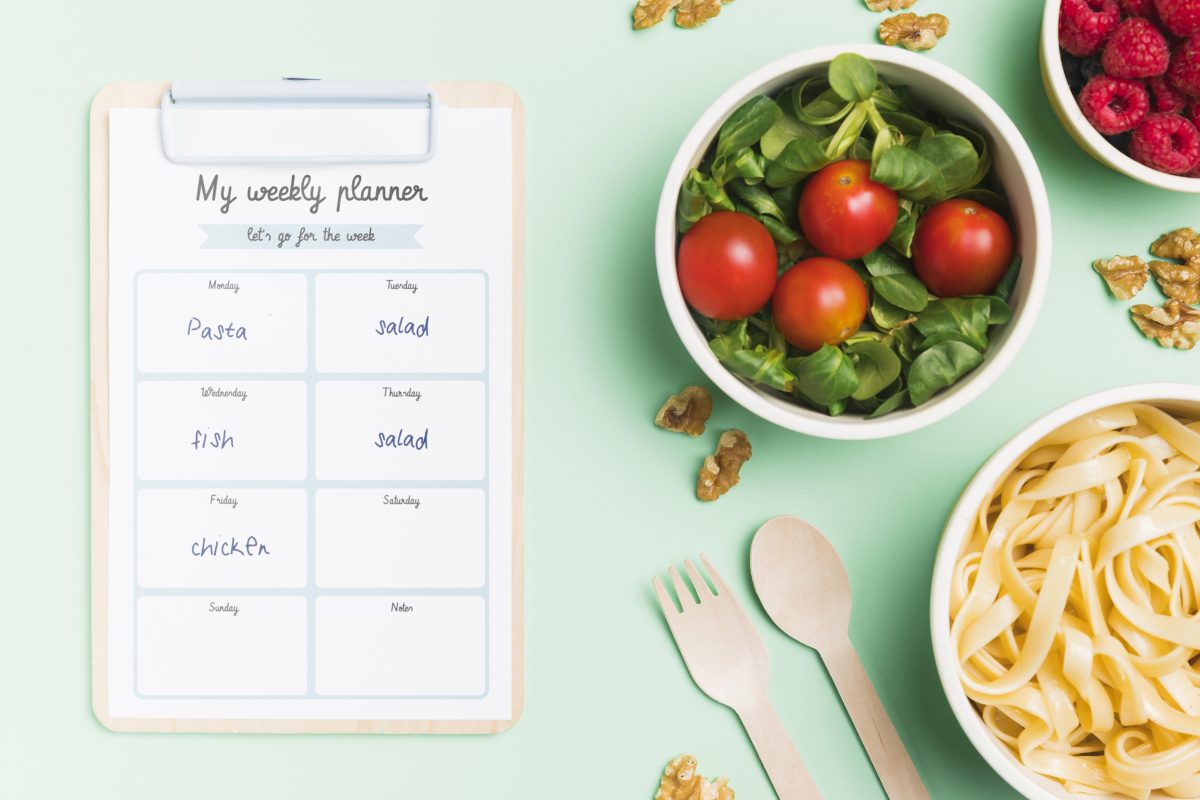Planning healthy meals for the week can seem daunting at first, but with a little bit of effort and organization, it can become a seamless and enjoyable process. By preparing meals in advance, you can ensure that you’re eating a balanced diet, save money on eating out, and reduce food waste. In this blog, we’ll discuss some practical tips on how to plan healthy meals for the week, keeping an Indian perspective in mind.
Step 1: Create a Meal Plan
The first step to planning healthy meals is to create a meal plan for the week. Take into account your dietary preferences, budget, and the number of people you’re cooking for. Plan meals that are balanced, consisting of a mix of proteins, whole grains, vegetables, and fruits.
You can choose to plan your meals for the week on a Sunday or any other day of the week that works for you. Plan for breakfast, lunch, dinner, and snacks, and ensure that you have a variety of foods in your plan. Consider using seasonal vegetables and fruits that are locally available as they tend to be more nutritious and cost-effective.
Step 2: Make a Grocery List
Once you have your meal plan in place, it’s time to make a grocery list. Look at the ingredients required for each meal and make a list of what you need to buy. This way, you won’t end up buying things you don’t need, and you’ll save time and money at the grocery store.
When making your grocery list, try to stick to whole, unprocessed foods as much as possible. Avoid packaged and processed foods that are high in sugar, salt, and unhealthy fats. Buying in bulk can also be a cost-effective way to stock up on pantry staples like whole grains, lentils, and spices.

Step 3: Meal Prep
Meal prep is a game-changer when it comes to healthy eating. Spending a few hours prepping your meals for the week can save you a lot of time and effort during the week, and it can ensure that you’re eating healthy meals every day.
Start by chopping vegetables, cooking whole grains and lentils, and marinating meats or tofu. This will help you assemble meals quickly during the week. Store your prepped ingredients in airtight containers in the refrigerator or freezer, depending on how soon you plan to use them.
Leftovers are a lifesaver when it comes to meal planning. Rather than throwing away excess food, try to repurpose it into a new meal. For example, you can use leftover cooked vegetables to make a soup or a stir-fry or turn leftover dal into a dip or a sandwich filling.
You can also plan for leftovers when making your meal plan. Cook a larger batch of a meal, such as a vegetable curry or a lentil soup, and enjoy it for lunch the next day.
Step 4: Get Creative with Leftovers
Leftovers are a lifesaver when it comes to meal planning. Rather than throwing away excess food, try to repurpose it into a new meal. For example, you can use leftover cooked vegetables to make a soup or a stir-fry or turn leftover dal into a dip or a sandwich filling.
You can also plan for leftovers when making your meal plan. Cook a larger batch of a meal, such as a vegetable curry or a lentil soup, and enjoy it for lunch the next day.
Step 5: Use Healthy Cooking Methods
How you cook your food can make a big difference in its nutritional value. Avoid deep-frying and opt for healthier cooking methods such as roasting, baking, grilling, or sautéing. These methods retain the nutrients in your food and require less oil, making your meals healthier and lower in calories.
Step 6: Don’t Forget About Snacks
Snacks can be a healthy addition to your meal plan, provided they’re nutritious and balanced. Opt for snacks that are high in protein and fibre, such as nuts, seeds, roasted chickpeas, and fresh fruits.
You can also prepare snacks in advance, such as homemade energy bars or granola, and store them in airtight containers for a quick and easy snack on the go.
Takeaway
Planning healthy meals for the week may seem like a lot of work, but it’s a habit that can help you eat well, save money, and reduce food waste. By following the steps we discussed above, you can plan nutritious meals for the week, ensuring that you’re getting all the nutrients you need. Remember to focus on whole, unprocessed foods, and use healthy cooking methods to retain the nutrients in your food.
Don’t be afraid to get creative with your meal planning, and try out new recipes and ingredients. Planning meals for the week can be an enjoyable experience, and you may even discover new favourite meals in the process.
Incorporating healthy habits like meal planning and preparation into your routine can have a positive impact on your overall health and well-being. So, take the first step and start planning your meals for the week today!





















Share this article